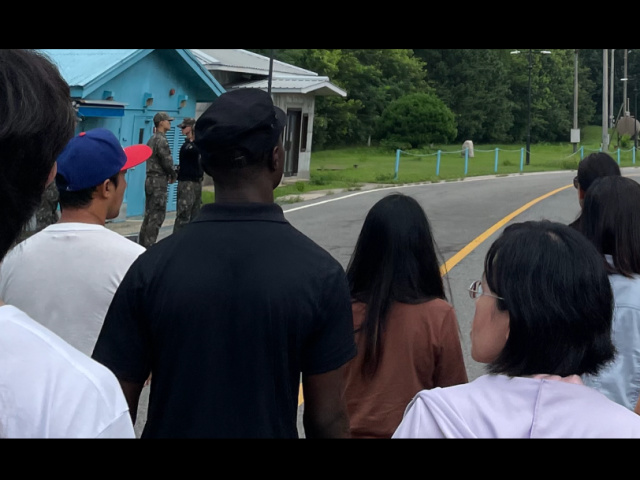U.S. officials said on Wednesday that U.S. Army Pvt. 2nd Class Travis King is back in American custody after the North Korean regime expelled him.
King broke away from a guided tour of the border village of Panmunjom on July 18 and fled across the border into North Korean territory.
North Korea announced earlier on Wednesday that it had concluded a 70-day investigation and found King guilty of “illegally intruding” into its territory.
North Korean media said King, 23, confessed to dashing across the border because he “harbored ill feeling against inhuman maltreatment and racial discrimination within the U.S. Army and was disillusioned about the unequal U.S. society.” The Pentagon said on Wednesday that none of the statements attributed to King by North Korea have been verified as authentic.
“The relevant agency of the Democratic People’s Republic of Korea decided to expel Travis King, an American soldier who illegally intruded into the territory of the DPRK, in accordance with the laws of the Republic,” said a statement posted by North Korea’s state-run KCNA news service.
The New York Times (NYT) observed that it was “unusual for North Korea to expel an American soldier who has expressed a wish to seek asylum there,” especially one who allegedly says the kinds of very useful things King supposedly told Pyongyang’s interrogators.

A tourist from New Zealand captured a photo of U.S. Army Pvt. Travis King shortly before he ran into North Korea from the Demilitarized Zone that separates it from South Korea (TMX).
“In the past, the country allowed American G.I.s who deserted to its side to live and even start families there. It often used them as propaganda tools, casting them as evil United States military officers in anti-American movies,” the NYT recalled.
Korea Joongang Daily recalled at least six American soldiers who have crossed the border into North Korea, beginning in 1962, and said King was the first to be expelled by Pyongyang.
Other analysts wondered why North Korea did not hold King hostage as a bargaining chip, as it has done with many other Americans who fell into its clutches – such as Otto Warmbier, the student who was unlawfully jailed by North Korea in 2016 and returned to his family a year and a half later in a coma, from which he never recovered.
Professor Yang Moo-jin of Seoul’s University of North Korean Studies told CBS News the DPRK probably found it too “difficult” to use King for propaganda because he was a fugitive from U.S. legal custody when he fled across the border. Yang thought the regime might have decided King had little value as a bargaining chip because of the “lukewarm response” to his defection by the U.S. government.
Sejong Institute analyst Cheong Seong-chang told the Associated Press (AP) that North Korea decided King “simply wasn’t worth keeping, possibly because of the cost of providing him food and accommodation and assigning him guards and translators when he was never to be a meaningful source of U.S. military intelligence.”
Learning that he was not even worth much to North Korea as a hostage will probably not sit well with King, who was on his way out of South Korea in July after serving two months in prison for assaulting two people and kicking a police car. King ducked out of his flight back to Texas from South Korea’s Incheon airport, joined a border tour group, and then ran into North Korea.
Two U.S. officials told the AP on Wednesday that King has indeed been evicted from North Korea and was “transferred to American custody in China.”
“His fate remains uncertain, having been declared AWOL by the U.S. government. That can mean punishment by time in military jail, forfeiture of pay or a dishonorable discharge,” the AP noted.

COMMENTS
Please let us know if you're having issues with commenting.